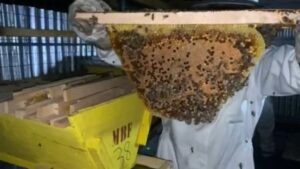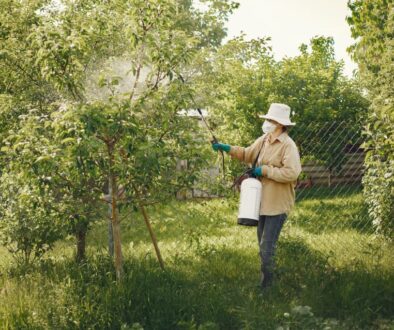Beekeeping, also known as apiculture, is not only a sweet endeavor but also a powerful tool for environmental conservation and agricultural sustainability. In Kenya, where agriculture plays a pivotal role in the economy, beekeeping offers a range of potential and actualized benefits for farmers and the environment. In this blog, we will explore the numerous ways beekeeping positively impacts Kenya’s environment and its farmers.
1. Pollination Power
Bees are nature’s most efficient pollinators. Their visits to flowering plants help ensure the reproduction of many crops, including fruits, vegetables, and cash crops like coffee and tea. The process of pollination is crucial for high agricultural yields, and beekeeping contributes to increased crop production and the overall food security in Kenya. Farmers who engage in beekeeping enjoy healthier and more abundant crops due to the bees’ tireless efforts.
2. Biodiversity Conservation
Kenya’s diverse ecosystems are home to numerous plant species that rely on pollinators like bees for their reproduction. When bee populations are thriving, they help maintain the biodiversity of these ecosystems. Beekeeping practices, when sustainable and integrated into the local landscape, support the conservation of native plant species and contribute to the overall health of Kenya’s natural environment.
3. Soil Fertility
Honeybees help improve soil fertility through pollination. The more efficiently crops are pollinated, the higher their yield and quality. This, in turn, reduces the need for synthetic fertilizers, which can have negative effects on the environment. Reduced fertilizer use minimizes soil degradation and water pollution, contributing to a healthier and more sustainable agricultural system.
4. Reforestation and Ecosystem Restoration
Beekeepers often place their hives in natural areas, such as forests and savannas. This practice encourages the protection and reforestation of these vital ecosystems. When beekeepers invest in the conservation of natural habitats, they play a direct role in supporting Kenya’s efforts to combat deforestation and land degradation.

5. Honey Production and Economic Growth
Honey is a valuable product derived from beekeeping. It is a high-demand commodity, not only in Kenya but also in international markets. Beekeeping generates a source of income for Kenyan farmers, helping to reduce poverty and improve the overall standard of living. This economic boost encourages the protection of natural resources and empowers local communities to support environmental initiatives.

6. Climate Change Mitigation
Bees and their essential role in pollination contribute to mitigating the impacts of climate change. As crops thrive due to effective pollination, they sequester carbon dioxide and promote climate-resilient agriculture. Additionally, the forests and natural habitats preserved by beekeepers act as carbon sinks, further aiding in climate change mitigation.
7. Natural Pest Control
Honeybees are not only pollinators but also predators of crop-damaging insects. Their presence in agricultural landscapes helps reduce the need for chemical pesticides, which can harm both the environment and human health. By practicing sustainable beekeeping, farmers can harness the power of these tiny allies to protect their crops naturally.
Beekeeping in Kenya offers a multitude of environmental benefits that extend far beyond the sweet reward of honey. From pollination and biodiversity conservation to soil fertility and climate change mitigation, beekeeping plays a pivotal role in creating a more sustainable and eco-friendly agricultural sector. It empowers Kenyan farmers with economic opportunities while promoting responsible land use and natural resource conservation.
For farmers and beekeeping enthusiasts in Kenya, the path to a more environmentally conscious and economically prosperous future starts with the humble honeybee. By embracing the practice of beekeeping and making it an integral part of agricultural and environmental initiatives, Kenya can look forward to a greener, more sustainable tomorrow.




